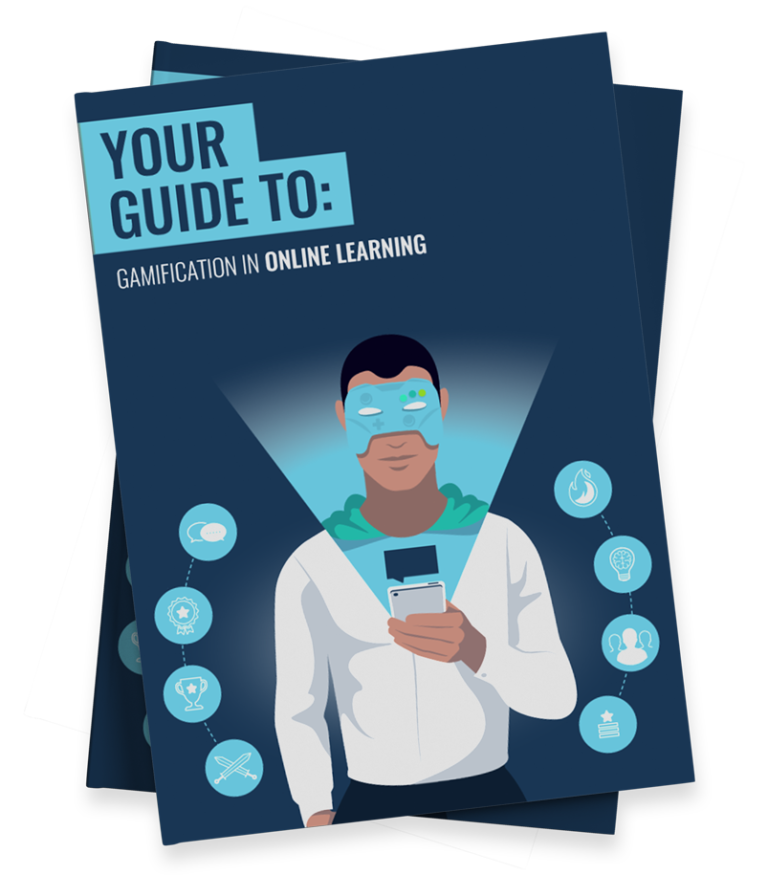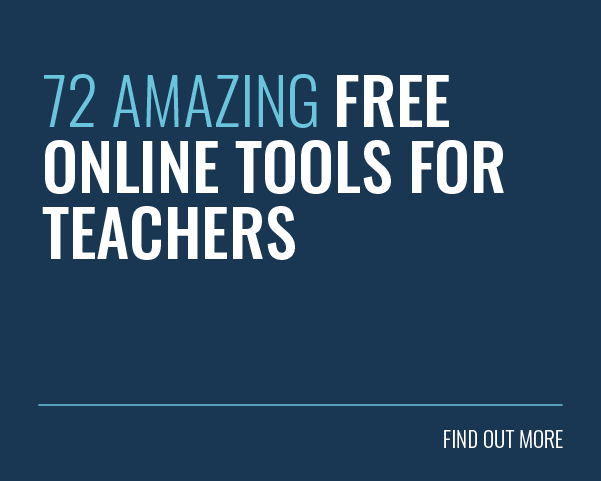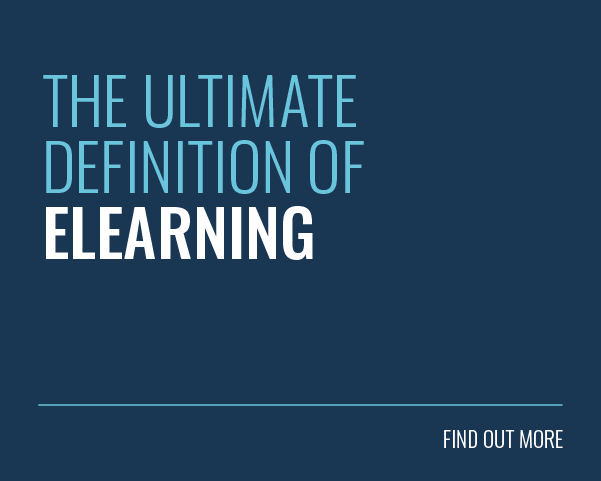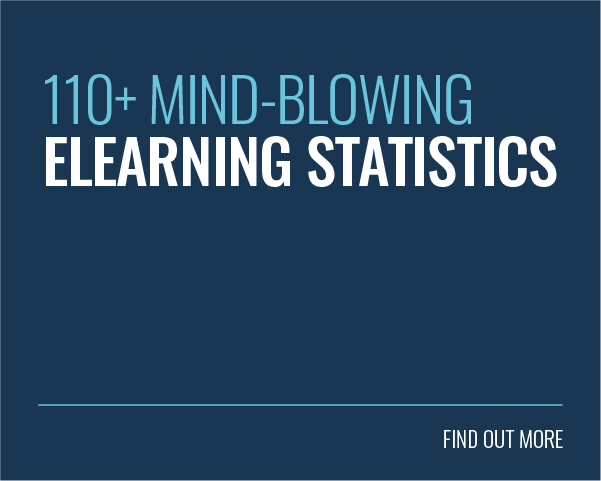
As a learning and development practitioner, you probably already know how hard it is to change behaviour on an organisational scale. Sisyphus had it easy in comparison. You, on the other hand, need to use every tool in your toolbox to engage, delight and inform your learners.
But there’s a problem. We tend to rely on the same old set of tools, regardless of the results. Text-heavy PDFs. Slideshow style eLearning. Stultifying classroom training. Virtual meetings that put the Zzz in Zoom.
But it doesn’t have to be this way. Modern online learning approaches have embraced new instructional methods that switch the focus from delivery to engagement. This includes gamified learning environments, learning games, simulations and now Knowledge Contests.
Knowledge Contests are a new learning asset that’s unique to Growth Engineering (that’s us!). They combine gamification, social learning and epic meaning to create a truly satisfying (and effective) learning experience.
Ready to learn more? Then grab your weapons of mass instruction, and let’s lead the charge!
What Are Knowledge Contests?
Contests are learner-vs-learner quiz showdowns. They’re now available on both Growth Engineering LMS and Growth Engineering Learning App.
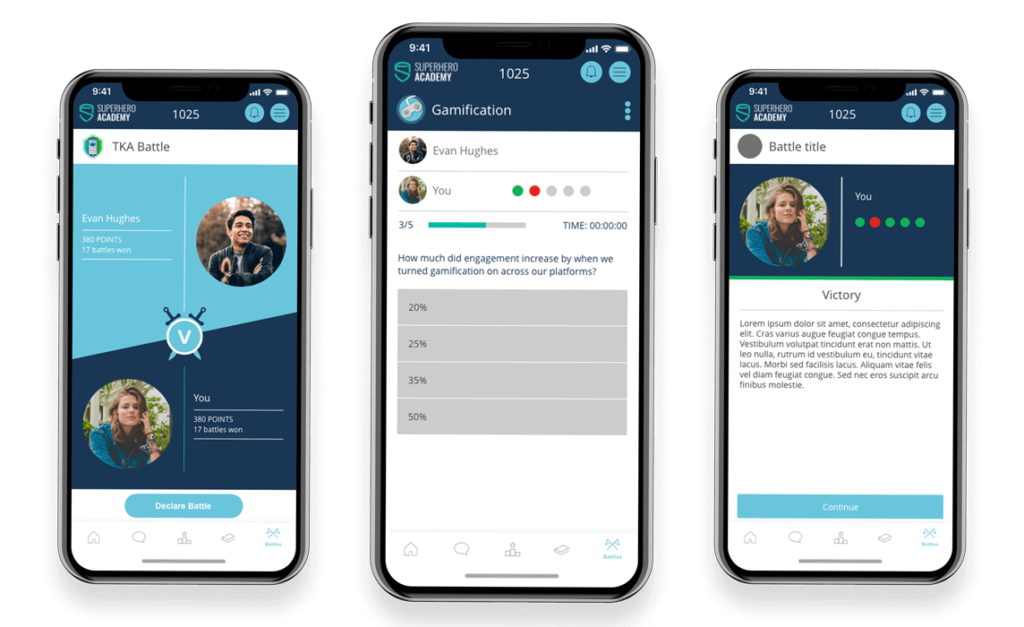
They pit learners against each other as they answer quiz questions in a penalty shoot-out format. All you need to do is set up a question pool for your learners to pull from. Once that’s done, here’s the process your learners will follow:
- The learner selects a quiz topic.
- The learner selects an opponent (or is randomly assigned one).
- Each learner answers five multiple choice questions.
- The learner with the most correct answers is declared the winner.
If it’s a draw, then the learner who answered their questions quickest wins. Easy, right?
And to the victor, the spoils! The winner can receive an XP boost and badges that help them to move up your platform leaderboards. This helps to incentivise further contests, creating a satisfying and habit-forming loop.
Ultimately, Knowledge Contests help learners to reinforce their knowledge and demonstrate their mastery over a subject matter. What’s not to love? And the fun doesn’t stop there…
What Are Squad Contests?
Squad Contests take the competition to the next level.
Divide your learners into Squads based on teams, departments, branches, countries or any other criteria of your choice. Your learners will then duke it out in the usual way. Except this time, they’ll be recording wins and losses for their Squad.
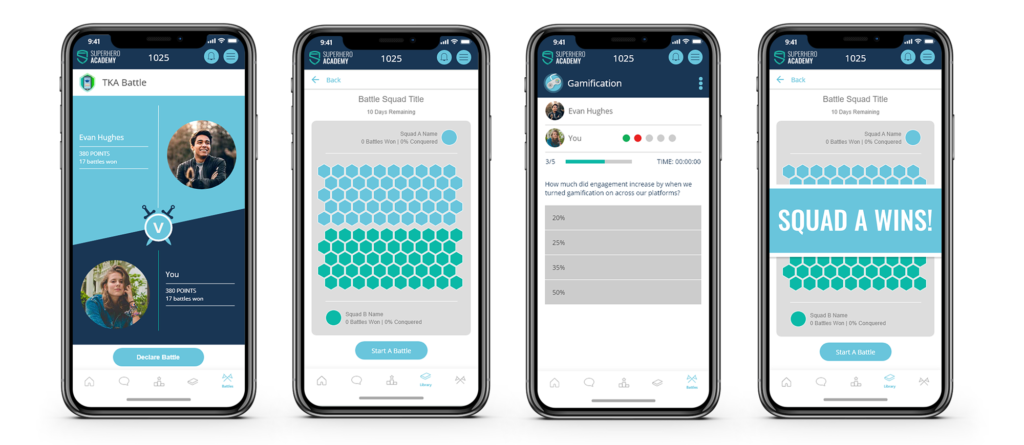
Each Squad Contest is visualised on a territory map. As learners record victories, they claw back more territory for their Squad. Once the timer runs out, the Squad with the most territory is declared the winner.
As you’d expect, this leads to all manner of gamified rewards and serious bragging rights.
When Are Contests Used?
Knowledge Contests are typically used as part of a wider learning campaign rather than as a stand-alone learning asset. They’re designed to help supercharge your existing training initiatives so you can drive more engagement and better results.
They’re quick and easy to consume, and they’re a great testing and reinforcement tool. What better way for learners to check their progress than by competing against their peers?
We recommend utilising Knowledge Contests as part of the following structure:
- Step 1: Conduct a full training needs analysis to establish your skill and knowledge gaps.
- Step 2: Create content interventions (eLearning, video, games, etc.) to fill these gaps.
- Step 3: Challenge learners to showcase their knowledge across your social streams.
- Step 4: It’s time! Release a Contest so learners can prove their subject matter mastery.
Of course, each training initiative is unique. You may want to mix things up and try other approaches. But we’ve found the above structure to be particularly effective.
You should also ensure that you reward your top contestants appropriately. This should come in the form of both Badges, XP and platform recognition. Why not call them out across your social streams?
The Key Statistics
Contests have generated unprecedented levels of learner engagement for our clients. For instance, L’Oréal Travel Retail Asia Pacific see their learners answer an average of 810 questions per month. Just think about all that knowledge reinforcement!
Back in 2019, we launched a month-long pilot programme with HP salespeople. Over the course of that month, each learner completed an average of 19 Contests. This, combined with healthy microunit completion stats, led to HP rolling out the app in other territories.
It’s clear that Contests work. But why is this?
Why Contests Work
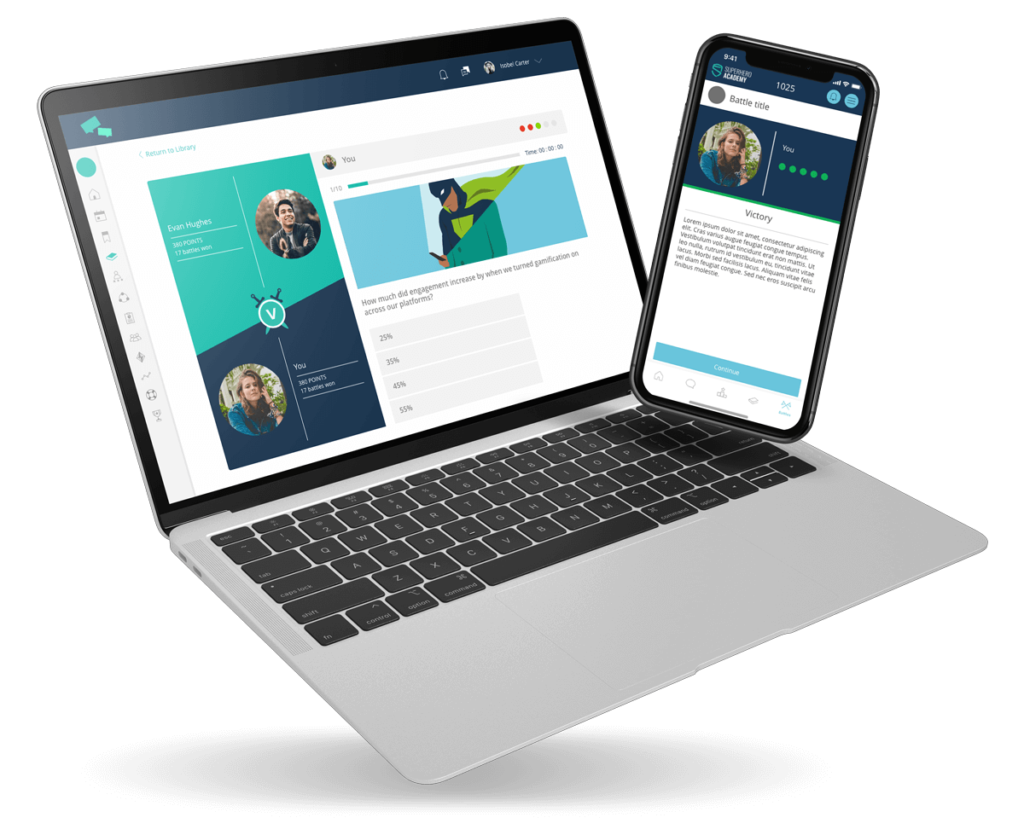
According to BJ Fogg, human behaviour is the result of combining motivation with a trigger. Contests (and peer-vs-peer competitions in general) provide both of these elements.
The trigger is the Contest itself (or the notification that alerts users to its existence). The motivation is often a combination of intrinsic and extrinsic factors. This can include:
- The perceived sense of achievement or self-actualisation
- The projected praise, recognition or status boost
- Points, ratings and rankings
- Real-world rewards (if incorporated as part of your training initiative)
We like competition. It pushes us to do better. It protects us from complacency. And it provides a means for us to measure our mastery.
Competition also creates innovation. That’s why monopolies are frowned upon. It’s why Michael Jordan — one of the fiercest competitors of all time — had to ‘invent’ rivalries to keep himself motivated. What’s more, competition almost certainly sped up the production of coronavirus vaccines.
And let’s not forget: It feels good to win. It’s a great way to tickle our reward receptors. Winning releases dopamine, a chemical messenger closely associated with pleasure. There’s even research that suggests that winning once increases the likelihood that you’ll win again.
Social Comparison Theory
There’s still one question we haven’t answered. Why does it feel better to compete and win against our peers rather than simply completing a standard test or assessment?
According to a New York University study, competing against someone you know helps to increase the ‘psychological stakes’ associated with the outcome. Their study found that runners were almost 8 seconds faster per mile when they were racing against a known rival.
A Bellevue College study also found that archers score significantly higher when their main competitors are present.
We can put this down to social comparison theory. This theory was developed by Leon Festinger in 1954. It suggests that we determine our personal and social worth by comparing ourselves to others.
The rise of social media has helped to highlight this phenomenon. It’s even given birth to a new term: ‘comparison culture’.
How Do Knowledge ‘Contests’ Improve Learning Programmes?
Now that we understand why Contests work, it’s time to look at the role they play within your training programmes. With this in mind, here are five benefits associated with Knowledge Contests.
1. Knowledge Contests Reinforce Through Repetition
According to the forgetting curve, we forget 90% of everything we learn within a month. That’s a lot of wasted time and energy.
But don’t despair. We can battle back and crush the curve through Contests. You can add an unlimited number of questions to your question pool. As a result, you can create an unlimited number of quiz variations.
Contests are short, sweet and snackable, which helps to increase their replay value. Over time your learners will come across the same questions. This spaced repetition gives them a chance to improve their scores and reinforce their knowledge.
2. Knowledge Contests Drive Learners Back to Your Content
As we’ve seen, Contest are a powerful reinforcement tool. But they can also help your learners to identify gaps in their knowledge.
If they’re answering hundreds of questions a month, they’ll likely start to spot some patterns. Perhaps they keep getting a particular question wrong. Or perhaps they struggle with an entire topic.
This realisation will push your most ambitious learners back to your training content. They’ll spend time topping up their knowledge so they can perform better in their next Contest.
The best part of this? It’s all learner-led. It doesn’t require your intervention. As a result, you can focus on crafting content experiences that help to fill their knowledge gaps.
3. Knowledge Contests Help to Fuel a Learning Culture
Healthy competition brings us together and gives us a goal to aim for. It switches the focus from completion to victory. That sounds a lot more aspirational to us.
Contests and Squad Contests deliver this within a learning context. You can then use the social streams across your learning platform to provide recognition to your winners and get your entire user base fired up.
If you handle this in the right way, you’ll end up with an organisational culture that’s focused on learning and development. This is no easy feat. According to the CIPD, 98% of learning practitioners want a learning culture, but only 36% feel like they have it.
That’s a significant gap. Luckily, it can be overcome. Knowledge Contests play a key role as part of an engagement-focused learning campaign. They help to transform learning from a one-off event into an ongoing experience.
4. Knowledge Contests are a Perfect Match for Mobile Learning
There’s a clear winner in the battle between mobile and desktop usage. According to Statcounter, mobile devices accounted for 59.92% of all internet traffic in 2023 (vs just 37.97% for desktop). Times have changed. We no longer like being glued to our desks.
With mobile learning on the rise, it’s important that we adapt our training approaches. Here at Growth Engineering, we’re big advocates for microlearning experiences. And Contests just happen to be the perfect fit for this kind of approach.
A typical Contest can be completed in under a minute. After all, it’s just five rapid-fire questions. As such, they’re perfect for mobile consumption. This means you can compete on the bus, in bed, in the boardroom, or wherever you happen to be.
Knowledge reinforcement can now take place anywhere and at any time.
5. Knowledge Contests Make Your Training More Epic
Training experiences without meaning or purpose are usually doomed to failure. There’s a reason why completion rates are so low and dropout rates are so high.
To help rally your learners, you need to imbue your content with epic meaning. This is the sense of purpose that fuels our passion for a cause. This means that learners aren’t just completing your content for the sake of it. They’re doing it as part of a larger aspirational goal.
Contests and Squad Contests help to deliver this extra purpose. They give your learners a larger goal to work towards. Now they have an opponent to overcome and prestige to be won.
This makes it even easier for you to answer that dreaded question: what’s in it for me (WIIFM)?
A Note On Healthy Competition
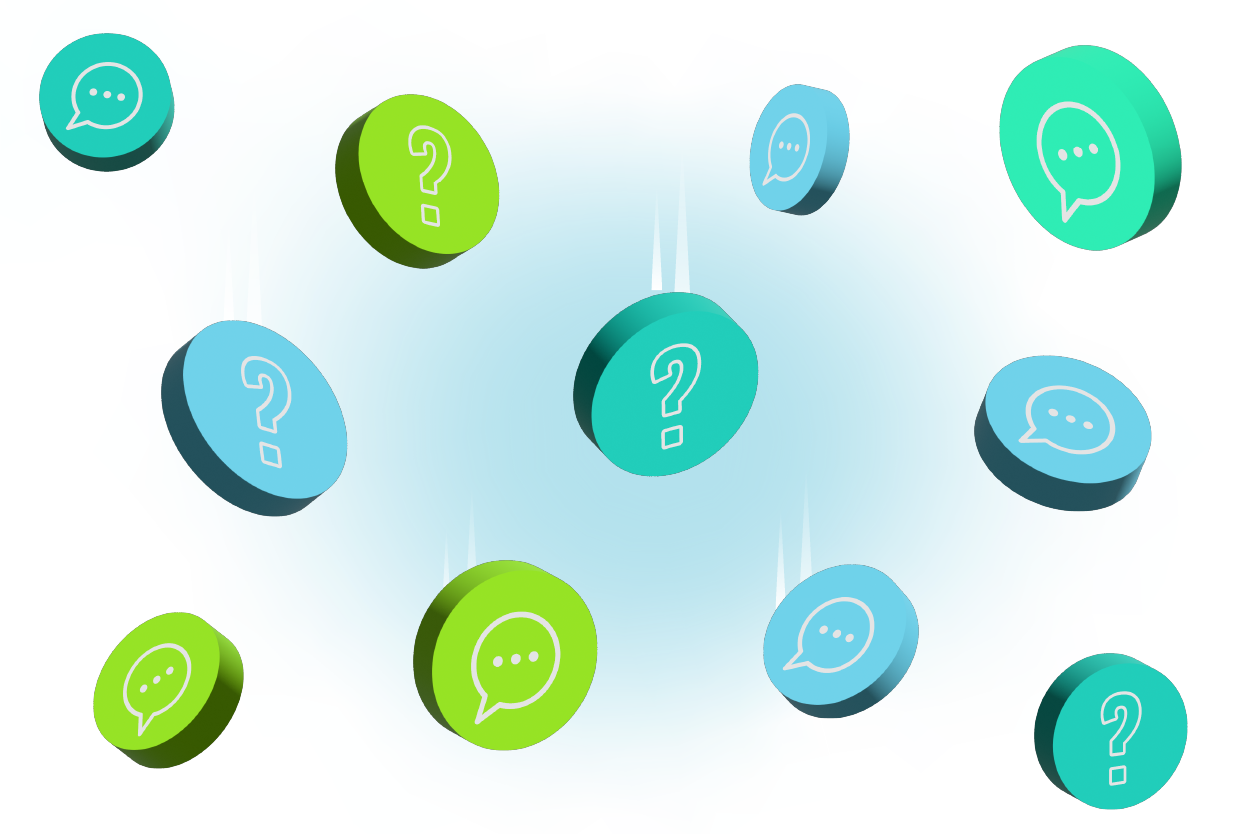
Knowledge Contests are competitive by their very nature. And we’ve seen that competition can be an excellent source of motivation. When the execution is right, competition should be fun and engaging.
Unfortunately, there’s a flip side to all this. If taken too far, a negative competitive work or training environment can breed resentment and conflict. We all know the damage that comparison culture can cause. At worst, you could end up with a toxic work or learning culture.
You should take care to safeguard against this. With that in mind, here are the hallmarks of healthy competition:
- Everyone should be given equal opportunity and a chance to win.
- There should be no favouritism, discrimination or manipulation.
- There should be no way to cheat the system.
- Wins should be celebrated by everyone.
- The competition should not generate stress or anxiety.
Of course, a lot of this comes down to your organisational culture. Healthy competition is usually a part of a healthy culture. Luckily, we’ve got some tips that can help with that!
Final Words
Knowledge Contests engage learners, test knowledge and improve retention levels. After all, the more engaged a learner is, the better they’ll be able to combat the curse of the forgetting curve!
Competition is engaging and rewarding. It gives us renewed purpose and focus. It helps to improve performance. Transferring this to the world of learning and development has clear benefits for you and your audience.
So what are you waiting for? Let the battle commence!
Thank you for reading. Want to find out more about game mechanics and competition elements in learning? Download our white paper, ‘The Ultimate Guide to Gamification in Online Learning‘ now.
Want to see Knowledge Contests in action? Sign up here!

